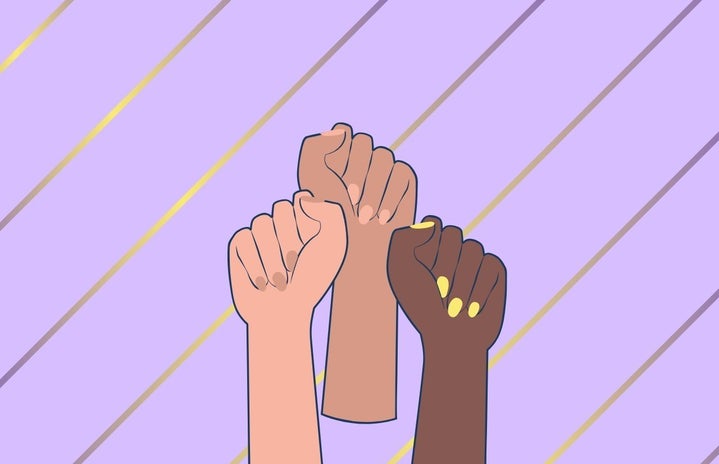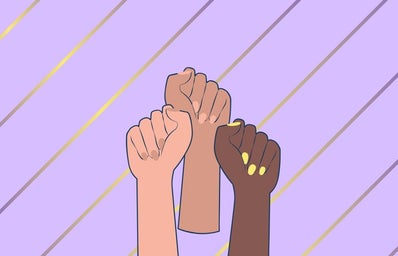“Feminist: the person who believes in the social, political and economic equality of the sexes”
Feminism is a social, political and philosophical movement that has transformed and revolutionised women’s lives. Transformation in all its dynamic facets is what I wished for from my undergrad years. I have been lucky and well to an extent, we’ve all been lucky to have glorious women surrounding us. The shape shifting narrative that they create with regards to feminism, is where the movement, moves us.
So as a 17-year-old who just wanted to know, what does it take to call oneself a feminist, is there a prototype or have we as a society achieved intersectionality as a narrative within feminism? I kept wondering to myself why Beyoncé’s Flawless makes me feel all kinds of empowered. That led me to Chimamanda Ngozie Adichie. Adichie came to fame with her speech, We Should All Be Feminists. At the time, it was an intriguing thought, that why it essential to be a feminist. I then decided to give Dear Ijeawele or Feminist Manifesto in Fifteen Suggestions, a read.
Little did I know, that three years from then I’d still be quoting her, in the most habitual circumstances. Although the mission of the movement is constant, once recognised, it tends to navigate itself to the most intrinsic parts of our lives. Liberation then becomes a storytelling process, of path-breaking stories.
The truth is that we’ve always lived in a patriarchal society. This oppression has turned into a norm, an expected way of living. This book although based on Igbo culture of Nigeria, during the course of reading it, I could connect the dots to my home country, India.
The book is essentially a series of 15 suggestions that the author gives to her friend Ijeawele, who has recently given birth to a baby girl, Chizalum. Adichie prepares her friend to raise her daughter in a world that thrives on restrictions on women. She prepares the world on how to raise a feminist. Emphasizing on how gender roles are something we acquire since childhood; pink and blue, dolls and cars all seem mere, but lay the foundation of gender differences and patriarchy. Ijeawele would have to let go of all redundant social norms that govern our psyche.
The single-story creates stereotypes, and the problem with stereotypes is not that they are untrue, but that they are incomplete. They make one story, become the only story. Reading this was certainly a moment of introspection, even within the hierarchies of the feminist movement. In our attempts to bring our stories to the forefront, it becomes increasingly important to imbibe diversity. We must acknowledge our privilege when it comes to being able to tell our story and understand that not each story is the same. Quite often, we’re asked to pick our battles. Our battle should then become to tell each story inclusive of the lived experiences of these women, with the value they deserve.
On discussing parenthood Adichie talks about how a child isn’t only the mother’s responsibility, but the father’s too. To let the father have his share of work around the child inculcates the value of equality at home. But the father doesn’t “help” when he takes care of the child but is simply doing his job as a parent. In this, we see the grammar of how parenthood ought to operate. Setting aside the biological reasons, child care is most certainly not only the mother’s territory.
More than that, Adichie tells us how being a full person helps the woman. Her family shouldn’t just see her as a mother but also a person of her own. Having ambitions for herself isn’t a sin and doesn’t take away from her being a good mother to her child. This is often the result of women being stricken to the private sphere of society. The domestication of women, expecting to be caretakers of a household simply to prove their femininity. This is where the idea of a ‘traditional woman’ is problematic. The fact that people use tradition to justify anything, to Adichie, than becomes an easy way out.
There is also a similarity drawn between Indian and Nigerian culture, wherein cooking is seen as a test for marriageability. Way too often women are conditioned to think that marriage is a prize and procreation is the end goal.
When Adichie says cooking as a skill isn’t embedded in the vagina, I hear myself cheering alone in my room. Her statements may come off as strong at first, but that too becomes a moment of recognition of how as a woman, I must not appear too opinionated?
Chizalum must also learn to question the existing norms. She must question the idea of how men only empathise with women who are related to them. She must understand that the premise of chivalry is often seen as a female weakness.
It is imperative to talk about sexuality and losing one’s virginity shouldn’t be considered as an act of shame. Shame has no link with female biology. She must be taught about romance and love. But the idea of love mustn’t coincide with dependence, it isn’t a man’s job to provide. A healthy relationship is one where responsibility is split into halves.
Her suggestions encompass every ideal that governs us. When I reached the end of this manifesto, I realised that this may be written for Ijeawele, but all along I found myself learning. In its simplicity and candid writing style, it reminds you why this isn’t just a response Ijeawele awaits for, but all of us do. It’s a reminder of the fact that we as women, are constantly raising ourselves, to be ourselves and celebrating who we are. We should remember in all this that behind every great woman, there’s at least a dozen more.


